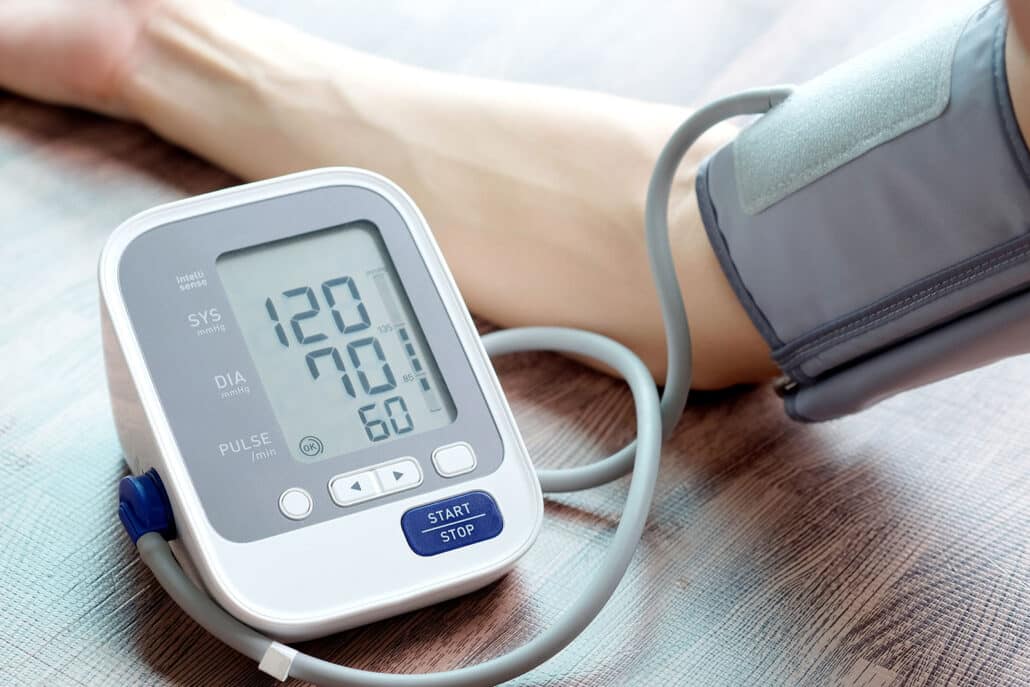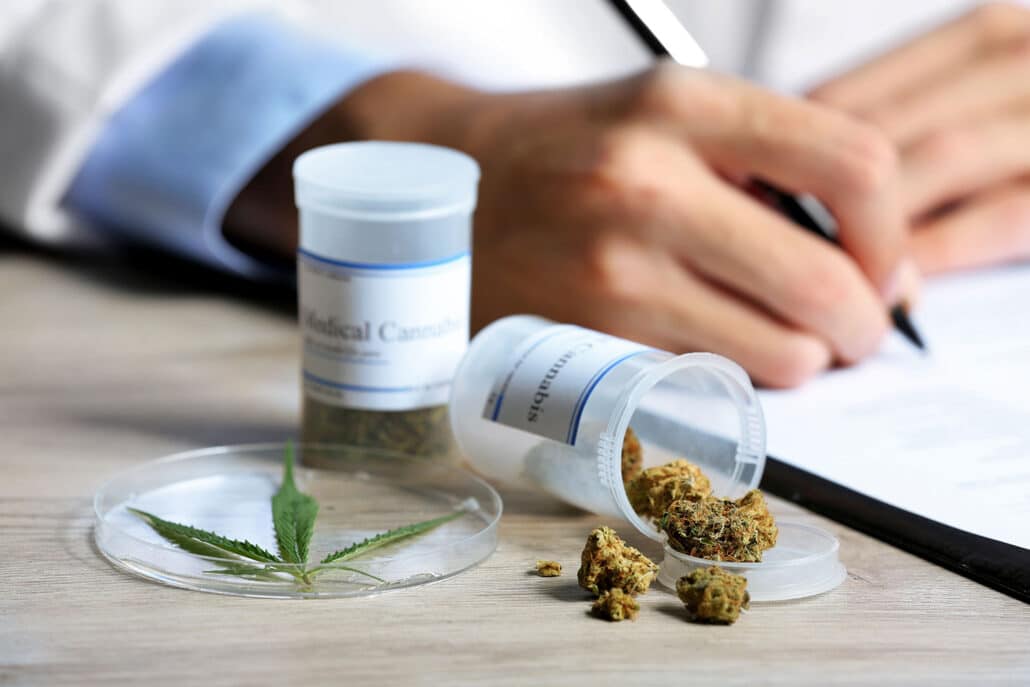Nearly half of the 50 states have legalized cannabis since 2012. As a result, it has gained popularity as a recreational drug. Although many believe that weed has fewer long-term health effects than other drugs and alcohol, recent studies attest to the contrary.
Research shows that using weed affects your brain, your heart, and your blood pressure immediately and over the long term. High blood pressure can lead to chronic kidney disease, heart disease, and strokes. Find out how to avoid these serious health problems and get answers to the question, “Does quitting weed lower blood pressure?
Table of Contents
How Does Marijuana Affect Blood Pressure?
Cannabis use affects your blood pressure right away. As soon as the drug enters your system, your heart rate quickens, pumping more blood through your veins and raising your blood pressure. Repeated marijuana use can strain your cardiovascular system, making you vulnerable to more serious health problems like heart disease.

Systolic blood pressure is the first number when you get tested at your doctor’s office. It reflects the pressure of blood on artery walls during each heartbeat. Diastolic blood pressure is the second number, and it reflects the arterial pressure between heartbeats. For example, if your blood pressure is 120/80, the systolic reading is 120 while the diastolic reading is 80.
Although there is a need for further study with more long-term research, some recent studies do not bear out this weed use/blood pressure dynamic. A study from 2023 showed that heavy cannabis users experienced lower blood pressure than non-users. Study participants showed a marked decrease in systolic blood pressure, suggesting that weed may actually contribute to better heart health.
In an earlier study completed in 2012, results were different. Researchers from the U.S. National Health and Nutrition Survey concluded that prolonged marijuana use raised their subjects’ systolic blood pressure to a moderate degree. In view of these conflicting results,
THC and CBD: Which One Influences Blood Pressure the Most?
THC and CBD are the two main cannabinoids in marijuana. They are the chief chemicals that create temporary changes in your brain when you use weed. THC stands for delta-9-tetrahydrocannabinol. CBD is an abbreviation for cannabidiol. Both substances occur naturally in the marijuana plant. Both affect the way your brain functions, but THC is the substance that produces a high. CBD has medical purposes but is not psychoactive.
According to the research, CBD slows down communication between cells in your brain, making you feel more relaxed. It also eases brain inflammation. Those properties are likely to make you feel better after you use a product with CBD. It can also affect calcium levels in the brain, which influence cell-to-cell communications.
On the other hand, THC produces a pleasure response in specific parts of your brain. It also stimulates the release of dopamine, which makes you feel euphoric. Different strains and preparations of weed contain various amounts of THC. Those weed products that are higher in THC produce stronger physical effects.

At the turn of the century, the average concentration of THC in weed was around 5.2%. By 2022, the average THC concentration had tripled to over 16%. Stronger weed with higher THC content has become the norm since many states legalized this drug. As a result, health concerns about the chemical are on the rise too.
Recent cannabis research that focuses on the health effects of THC tends to be inconclusive. Strict regulations for controlled substances in the past have limited the amount of research to date. However, with higher concentrations of the chemical THC in some strains of weed, medical professionals have identified higher health risks within the first hour of ingestion, including your risk for:
- Arrhythmia, or irregular heartbeat
- Cardiac arrest
- Cardiomyopathy, or damage to the heart muscle
Also, marijuana smoking often causes lung issues, lowering the level of oxygen in your blood to an unhealthy degree. It can lead to long-term respiratory difficulties like:
- Asthma, a chronic disease which constricts your blood vessels
- Bronchitis, a lung disorder which causes swelling in your brachial tubes
- Emphysema, a chronic disease that damages your lungs, reducing the flow of oxygen to your bloodstream
Sustained hypertension is another risk associated with cannabis use, especially for smokers. Hypertension occurs when your blood pressure remains higher than normal over a sustained period. If you use weed on a daily basis, your blood pressure can remain elevated. Any of the following factors can increase your risk of illness or death:
- Advanced age
- Family history of high blood pressure
- Overweight
- Sedentary lifestyle
- Alcohol use disorder
- A diet high in salt
- High-fat diet
You can reduce some of the above risk factors and also improve your health in the future. The most important change you can make is to stop using weed. The health professionals at Long Island Interventions can help.
Does Quitting Weed Lower Blood Pressure?
The answer is complicated, but ultimately, it will. If you use cannabis daily, you may develop a resistance to its immediate effects over time. For example, when you smoke or ingest weed, your heart rate may not speed up as much. Your blood pressure may not rise as sharply as it once did.

When you stop using, especially if you quit cold turkey, you can experience a marked physical reaction. Your pulse rate and blood pressure rise. In one controlled study, subjects who abruptly stopped using cannabis experienced a rise in systolic blood pressure of up to 10 points. Researchers call this a rebound effect to built-up drug tolerance. This is related to cannabis withdrawal and the effects of marijuana on the endocannabinoid system.
That is one reason it’s so important to quit weed under the care and guidance of health professionals. They will help you through initial rebound symptoms while mitigating the risks.
Keep in mind that quitting weed will reduce your blood pressure in the longer term. When you no longer use it, you will no longer experience those immediate responses like a spike in your heart rate and hypertension. Over time, your blood pressure will stabilize to a normal level.
If you have other health issues, a treatment program can help you address those too. You can work to resolve factors that threaten your good health like obesity, poor nutrition and alcohol use disorder.
If you have developed chronic cardiovascular disease as a result of heavy weed use, you can take measures to get it under control with the help of your doctor. Quitting weed will not resolve such serious health problems, but it can help relieve some of your symptoms. It can also prevent a new chronic condition from developing.
Additional Benefits of Quitting Marijuana
Improved cardiovascular health is not the only benefit of getting off marijuana. Your brain will benefit too. If you are young, you will be giving your brain the chance to continue its normal development without the influence of drugs. If you are older, your short-term memory, unclouded by weed, will improve. You should also notice better work or school performance as your brain returns to its formerly healthy state.
If you have depression or anxiety disorders, quitting weed will help alleviate some of your symptoms. Although it may have initially helped lift your mood and reduce your anxiety, prolonged cannabis use makes these conditions worse.
When you no longer use marijuana, you can get back into a regular sleep routine that your body needs. Consistent, restful sleep is critical to your physical and mental health.
If you are a weed smoker, quitting helps the inflammation in your lungs begin to heal. Your heart will experience less strain. You will be able to exercise more and improve your physical health.

How Long Island Interventions Can Help
Get professional help throughout your cannabis cessation journey. We offer both outpatient treatment and inpatient programs for quitting marijuana. Our providers and evidence-based programs help you achieve success through detox, treatment, therapy, and recovery. We can help you manage withdrawal symptoms and cravings associated with marijuana withdrawal.
With a wealth of resources, training, and experience at hand, Long Island Interventions gives you the support you need. Our compassionate, evidence-based approach has a proven track record for success. Our licensed and credentialed professionals work to customize a treatment program that fits your current needs and future aspirations.
Our support doesn’t end when you complete your program. We can connect you with appropriate post-treatment resources such as support groups to keep you on a positive path to a healthy, happier life.
Conclusion
Professional guidance is essential for those struggling with addiction treatment, particularly when dealing with cannabis use disorder. Quitting cannabis, whether from smoking weed or daily cannabis use of edibles, can be challenging, especially due to potential withdrawal syndrome, side effects, and impacts on the nervous system. Abrupt cessation may also lead to cardiovascular effects, such as orthostatic hypotension, increasing the need for healthcare support.
If you or a loved one is facing substance abuse issues, don’t hesitate to reach out for help. At Long Island Interventions, we have the tools and expertise to guide you through cannabis detox and recovery. Contact us today to learn more about how we can support you in overcoming marijuana addiction and achieving lasting wellness.
Published on: 2024-12-31
Updated on: 2025-05-06

